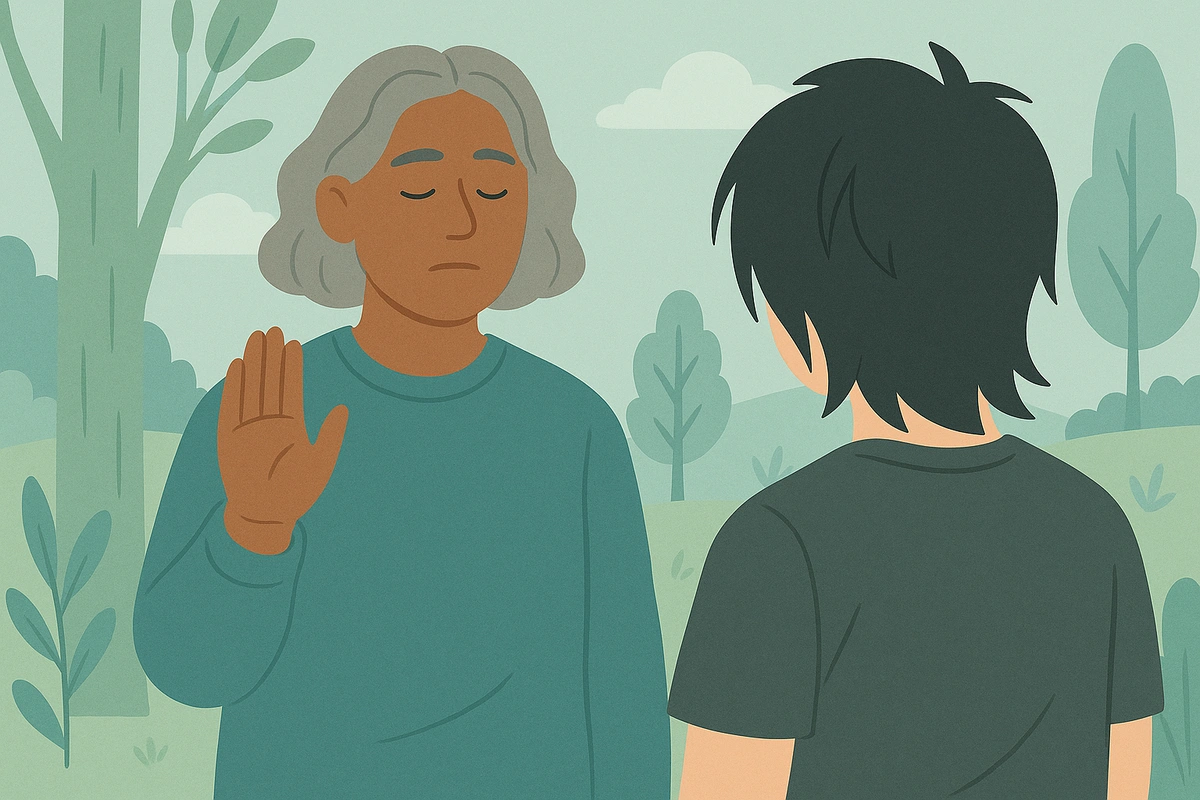Asking for space in relationships is a transformational boundary-setting practice that preserves individual identity while strengthening emotional intimacy. This essential skill transforms overwhelming relationship dynamics into healthy interdependence through respectful communication that honors both personal well-being and partnership connection.

Asking for space in a relationship means seeking personal time to focus on individual interests, hobbies, or self-reflection. This practice is like giving your emotional system a chance to reset and recharge, similar to how your phone needs regular charging to function optimally. When you request space thoughtfully, you're not pushing your partner away - you're creating room for both of you to breathe and return to the relationship with renewed energy and perspective.
Think of healthy relationships as having a natural rhythm between togetherness and apartness, like breathing in and breathing out. When couples spend every moment together, they can lose their individual identities and the very qualities that attracted them to each other in the first place. Research shows that individuals benefit positively when they actively choose time alone and it's used for regulation of emotions, self-reflection, relaxation, or creative pursuits.
Asking for space works by allowing your nervous system to regulate and reset when it becomes overwhelmed by constant social interaction. Think of your emotional capacity like a bank account - every interaction makes deposits and withdrawals. When you're constantly giving attention and energy without replenishing your reserves, you become emotionally depleted and less able to show up fully in your relationship.
Space provides what psychologists call "emotional regulation" - the ability to process feelings, gain perspective, and return to a balanced state. Evidence shows that people have reduced stress and increased relaxation during alone periods, which explains why one person in a relationship might crave solitude even when things are going well.
From a neurological perspective, when you're constantly in "relationship mode," your brain remains in a state of social monitoring and response. This requires significant mental energy and can prevent you from accessing your own thoughts, feelings, and desires. Time alone allows your brain to shift into a different mode where self-reflection and internal processing can occur.
Research indicates that the violation of personal space can cause discomfort, and this applies to emotional space as well as physical space. Without adequate boundaries around alone time, people can experience relationship anxiety, resentment, and a gradual loss of self-awareness.
The practice also works because it demonstrates healthy relationship functioning. Healthy relationships are best described as interdependent - each person maintains their individual identity while also being connected to their partner. This balance prevents codependency and ensures that both people are choosing to be in the relationship rather than feeling trapped or suffocated.
When both partners respect each other's needs for space, it actually increases intimacy because each person feels safe to be authentic and honest about their needs. This creates a foundation of trust and mutual respect that strengthens the relationship over time.
"My partner gets upset or anxious when I ask for space" - This is very common, especially if they've experienced abandonment or rejection in past relationships. Provide extra reassurance about your commitment, be specific about timeframes, and consider starting with shorter periods to build their confidence.
"I feel guilty for needing space from someone I love" - Needing space doesn't mean you love your partner less. Healthy relationships require individual autonomy alongside connection. Remind yourself that taking care of your needs allows you to show up better in the relationship.
"My partner refuses to give me space or makes me feel bad about asking" - This may indicate controlling behavior or fear-based attachment patterns. Consider couple's counseling to address underlying issues around trust and autonomy in your relationship.
"We end up fighting every time I ask for space" - Focus on timing your requests during calm moments, use more reassuring language, and consider whether there are unresolved trust issues that need professional support to address.
"I don't know how much space is reasonable to ask for" - The timeframe should be reasonable for both parties to agree with. Start small and adjust based on what works for your relationship. Most experts suggest anywhere from a few hours to a few weeks, depending on the situation.
"I feel disconnected from my partner after taking space" - Make sure you're maintaining some agreed-upon contact during space periods and prioritizing meaningful reconnection when you come back together. Space should refresh your connection, not create distance.